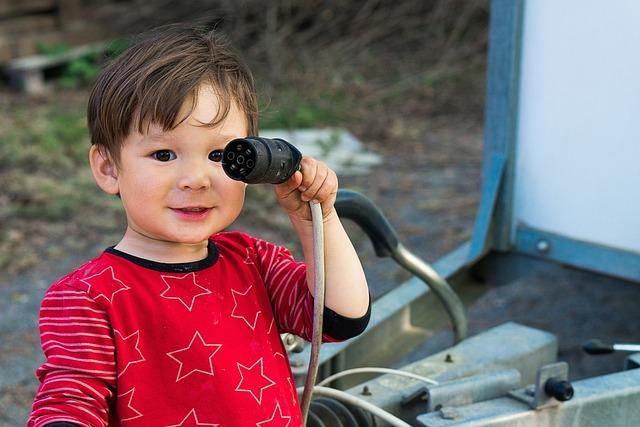Imagine a dog named Max, who once chewed up his owner’s favorite shoes. When his owner returned home, Max cowered in the corner, tail tucked, eyes wide. Did he remember his mischief? Research suggests that dogs do have a sense of past actions, but their understanding is different from ours. They may not recall the specifics but can associate feelings of guilt or fear with certain behaviors. This highlights the importance of positive reinforcement in training. Instead of punishment, let’s guide them toward better choices, fostering a bond built on trust and understanding.
Contents
- Understanding Canine Memory and Misbehavior
- The Science Behind Dogs Remembrance of Past Actions
- Effective Training Strategies to Address Misbehavior
- Building a Positive Relationship Through Consistent Reinforcement
- Q&A
Understanding Canine Memory and Misbehavior
When it comes to understanding our furry companions, one of the most intriguing aspects is their memory, particularly in relation to their behavior. Dogs possess a unique type of memory that allows them to associate certain actions with outcomes, but this doesn’t mean they hold onto these memories in the same way humans do. Their recollection is often tied to emotions and experiences rather than a linear timeline of events. This means that while they may not remember a specific instance of misbehavior, they can certainly recall the feelings associated with it.
Research indicates that dogs have a remarkable ability to learn from their experiences, which can influence their future behavior. For instance, if a dog receives a negative reaction after chewing on a shoe, it may associate that action with the unpleasant outcome. However, this doesn’t imply that the dog remembers the exact moment it misbehaved. Instead, it learns to avoid that behavior in the future, driven by the emotional response it experienced. This highlights the importance of positive reinforcement in training, as it helps dogs form favorable associations with good behavior.
Moreover, dogs are highly attuned to human emotions and body language, which plays a crucial role in their understanding of misbehavior. They can sense when their owners are upset or disappointed, and this emotional feedback can reinforce their learning process. For example, if a dog sees its owner frowning after it has jumped on the couch, it may not remember the act of jumping specifically, but it will recognize the negative emotion and may avoid that behavior in the future. This emotional connection is vital in shaping a dog’s behavior over time.
while dogs may not have the capacity to remember their misdeeds in a human-like manner, they certainly learn from their experiences and the reactions of their owners. By fostering a positive environment and using effective training techniques, pet owners can help their dogs develop good habits and minimize misbehavior. Understanding how dogs process memories can lead to more effective communication and a stronger bond between humans and their canine companions.
The Science Behind Dogs Remembrance of Past Actions
Understanding how dogs recall past actions involves delving into their cognitive abilities and emotional responses. Research indicates that dogs possess a form of memory known as associative memory, which allows them to connect specific actions with outcomes. This means that when a dog misbehaves and subsequently experiences a negative consequence, such as being scolded or losing a privilege, it can associate that behavior with the unpleasant outcome. This connection is not just a fleeting thought; it can linger in their minds, influencing their future actions.
Moreover, dogs are highly attuned to human emotions and body language. They often pick up on cues from their owners, which can reinforce their understanding of past misbehavior. For instance, if a dog sees its owner’s disappointed expression after it has chewed on a shoe, the dog may remember that moment and feel a sense of guilt or anxiety the next time it approaches the same shoe. This emotional component is crucial, as it suggests that dogs not only remember the action but also the emotional context surrounding it.
Additionally, studies have shown that dogs can exhibit behaviors that suggest they are aware of their past actions. When a dog engages in a behavior it knows is wrong, such as digging in the garden or stealing food from the counter, it may display signs of submission, such as lowering its head or avoiding eye contact. These behaviors indicate that the dog is not only recalling the misbehavior but is also aware of the potential repercussions, demonstrating a level of self-awareness that is quite remarkable.
the ability of dogs to remember past actions is further enhanced by their social nature. Dogs thrive on routine and structure, which helps them learn from their experiences. Through consistent training and reinforcement, owners can help dogs form lasting memories of both good and bad behaviors. By creating a positive environment where good behavior is rewarded, owners can effectively guide their dogs towards better choices, leveraging their memory to foster a harmonious relationship.
Effective Training Strategies to Address Misbehavior
Addressing misbehavior in dogs requires a thoughtful approach that combines understanding, patience, and effective training techniques. One of the most powerful strategies is **positive reinforcement**. This method involves rewarding desired behaviors rather than punishing unwanted ones. When a dog receives praise, treats, or playtime for good behavior, they are more likely to repeat those actions. This not only strengthens the bond between the dog and the owner but also fosters a positive learning environment.
Another effective strategy is **consistency in commands and expectations**. Dogs thrive on routine and clear communication. By using the same commands and signals for specific behaviors, owners can help their dogs understand what is expected of them. This consistency should extend to all family members to avoid confusing the dog. For instance, if “sit” means to sit down, everyone should use that same command without variation. This clarity helps dogs learn more quickly and reduces instances of misbehavior.
Incorporating **structured training sessions** into a dog’s daily routine can also significantly reduce misbehavior. These sessions should be short, engaging, and focused on specific skills or commands. By keeping training fun and interactive, dogs are more likely to stay engaged and eager to learn. Additionally, regular training helps reinforce good behavior, making it less likely for misbehavior to occur. Owners should aim for a balance of training, exercise, and play to keep their dogs mentally and physically stimulated.
understanding the **underlying causes of misbehavior** is crucial. Dogs may misbehave due to boredom, anxiety, or lack of exercise. By identifying and addressing these root causes, owners can implement more effective training strategies. For example, increasing physical activity through walks or playtime can alleviate excess energy that may lead to destructive behaviors. Similarly, providing mental stimulation through puzzle toys or obedience games can keep a dog engaged and reduce the likelihood of misbehavior.
Building a Positive Relationship Through Consistent Reinforcement
Establishing a strong bond with your dog is essential for effective training and behavior management. One of the most effective ways to foster this connection is through consistent reinforcement of positive behaviors. When your dog exhibits good behavior, responding with praise, treats, or affection not only encourages them to repeat those actions but also strengthens the trust between you and your pet. This trust is crucial for a harmonious relationship, as it creates a safe environment where your dog feels secure and valued.
Consistency is key in reinforcing positive behavior. Dogs thrive on routine and predictability, so it’s important to ensure that your responses to their actions are uniform. When your dog understands that certain behaviors will consistently earn them rewards, they are more likely to repeat those behaviors. This approach not only helps in correcting misbehavior but also in preventing it from occurring in the first place. By establishing clear expectations and consistently rewarding good behavior, you create a framework that your dog can easily understand.
Moreover, positive reinforcement can significantly impact your dog’s memory and learning capabilities. Dogs may not remember specific instances of misbehavior, but they can certainly learn from patterns. By consistently rewarding desirable actions, you help your dog associate those behaviors with positive outcomes. This association can lead to improved behavior over time, as your dog begins to recognize what actions lead to praise and rewards. The more you reinforce these positive behaviors, the more ingrained they become in your dog’s memory.
In addition to improving behavior, consistent reinforcement also enhances your dog’s overall well-being. A dog that feels appreciated and understood is more likely to be confident and less anxious. This positive emotional state can lead to a more balanced and well-adjusted pet. By focusing on building a relationship grounded in trust and positive reinforcement, you not only address misbehavior but also cultivate a deeper, more fulfilling connection with your furry companion.
Q&A
-
Do dogs have a memory of past actions?
Yes, dogs possess a form of memory that allows them to recall past experiences. However, their memory is not as linear or detailed as human memory. They can remember certain behaviors and the consequences that followed, but this memory is often tied to emotional responses rather than specific events.
-
Can dogs associate misbehavior with punishment?
Dogs can associate their actions with immediate consequences. If a dog misbehaves and receives a negative response right after, it may learn to avoid that behavior in the future. However, if there is a delay between the action and the punishment, the dog may not connect the two.
-
Do dogs feel guilt for misbehaving?
While dogs may exhibit behaviors that seem like guilt, such as cowering or avoiding eye contact, these reactions are often responses to their owner’s cues rather than an understanding of wrongdoing. Dogs are more likely responding to the emotional state of their owner rather than feeling guilt in the human sense.
-
How can I help my dog learn from misbehavior?
Positive reinforcement is the most effective way to teach your dog appropriate behavior. Instead of focusing on punishment, reward your dog for good behavior with treats, praise, or playtime. This approach helps your dog associate good actions with positive outcomes, leading to better long-term behavior.
while dogs may not recall their misbehavior in the same way humans do, they are highly perceptive and responsive to our cues. Understanding their behavior fosters a stronger bond and encourages positive training methods for a harmonious relationship.

大家好,我是彼得潘,專業的手法身體治療師。我喜歡探索和研究各種主題,並透過與人工智慧的合作分享專業、實用、有趣的文章。我們定期進行人工審核,以確保內容的準確性。如果您發現文章中有任何不準確的地方,請隨時與我們聯繫,我們會及時糾正。您可以透過 [email protected] 與我們聯繫。



